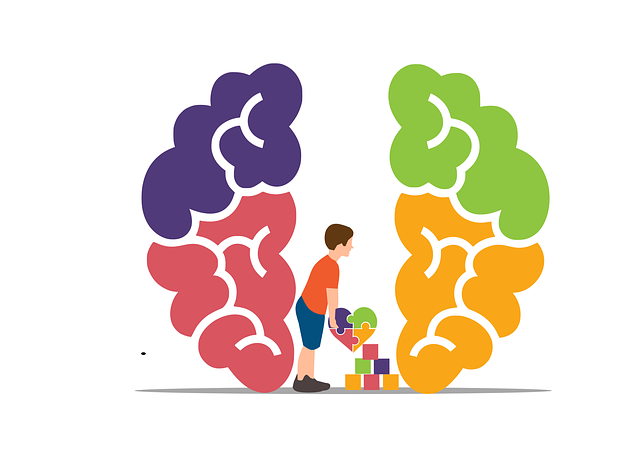Denver Therapy for Therapists-Clinicians focuses on empowering professionals to support clients in mood regulation. Using evidence-based techniques like CBT, Mindfulness, and DBT, therapists guide individuals through self-care routines, stress management, and emotional tracking exercises. This holistic approach, integrating practices like Emotional Healing and Mental Wellness Journaling, enhances well-being, prevents burnout, and leads to more effective Denver Therapy for Therapists-Clinicians.
Mood regulation strategies are essential tools for therapists and clinicians, especially those practicing in Denver. Understanding the intricate workings of mood regulation provides a solid foundation for effective therapy sessions. This article delves into evidence-based strategies that can be implemented in clinical settings, offering valuable insights for professionals seeking to enhance their practice. From cognitive reframing to mindfulness techniques, these methods not only support clients in Denver but also have broader applications for therapists and clinicians worldwide.
- Understanding Mood Regulation: A Foundation for Denver Therapy
- Evidence-Based Strategies: Tools for Therapists and Clinicians
- Practical Application: Implementing Techniques in Clinical Settings
Understanding Mood Regulation: A Foundation for Denver Therapy

Understanding Mood Regulation is a fundamental aspect of Denver Therapy, especially for therapists and clinicians. Mood is a complex emotional state that can significantly impact an individual’s overall well-being and functioning. Effective mood regulation strategies are essential tools in therapy to help clients manage and improve their mental health. By providing a solid foundation for Denver Therapy, these strategies enable individuals to navigate their emotions more adaptively.
The process involves recognizing and understanding the triggers and patterns of one’s moods. Therapists guide clients to develop self-care routines that foster resilience and emotional balance. This includes promoting healthy habits such as regular exercise, mindful practices like meditation or compassion cultivation exercises, and effective stress management techniques. Through Denver Therapy, individuals learn to respond to challenging situations with greater clarity and composure, leading to improved mental health outcomes.
Evidence-Based Strategies: Tools for Therapists and Clinicians

In the field of Denver therapy, therapists and clinicians play a pivotal role in helping individuals navigate their emotional well-being. When it comes to evidence-based strategies, professionals have access to a plethora of tools designed to support both the therapist and their clients. These approaches are particularly valuable for addressing mood regulation issues, which can be complex and multifaceted. By integrating these techniques into their practice, therapists can enhance their ability to help clients manage and stabilize their emotions effectively.
Evidence-based strategies such as cognitive behavioral therapy (CBT), mindfulness-based interventions, and dialectical behavior therapy (DBT) have proven efficacy in treating mood disorders. For healthcare providers striving to prevent burnout, these approaches not only aid in improving client outcomes but also contribute to maintaining professional resilience. Additionally, incorporating confidence-boosting techniques into therapy sessions can empower clients to better manage their mental wellness. Recent trends in the Mental Wellness Podcast Series Production further emphasize the importance of accessible and engaging resources for both therapists and their patients, fostering a holistic approach to mood regulation and overall well-being.
Practical Application: Implementing Techniques in Clinical Settings

In clinical settings, the practical application of mood regulation strategies is a cornerstone of effective Denver Therapy for Therapists-Clinicians. By integrating techniques such as Emotional Healing Processes and Self-Awareness Exercises, practitioners can empower individuals to manage their moods more effectively. Mental Wellness Journaling Exercise Guidance offers a powerful tool for self-reflection and tracking emotional patterns, enabling clients to gain insights that facilitate deeper therapy sessions. This holistic approach ensures that patients receive comprehensive care tailored to their unique needs, fostering resilience and enhancing overall mental wellness.
In the realm of Denver therapy, evidence-based mood regulation strategies are essential tools for therapists and clinicians. By understanding the foundational principles outlined in this article—from the basics of mood regulation to practical application in clinical settings—professionals can enhance their ability to support clients effectively. These techniques not only foster thriving individuals but also revolutionize care within the context of Denver therapy, ensuring a more balanced and fulfilling life for those seeking assistance.














